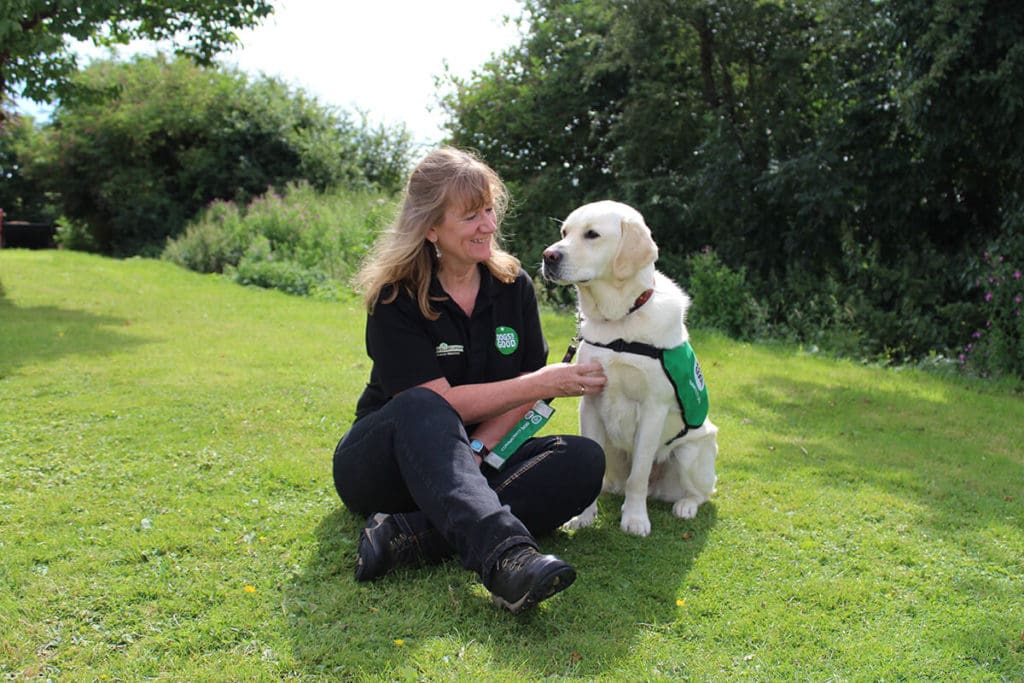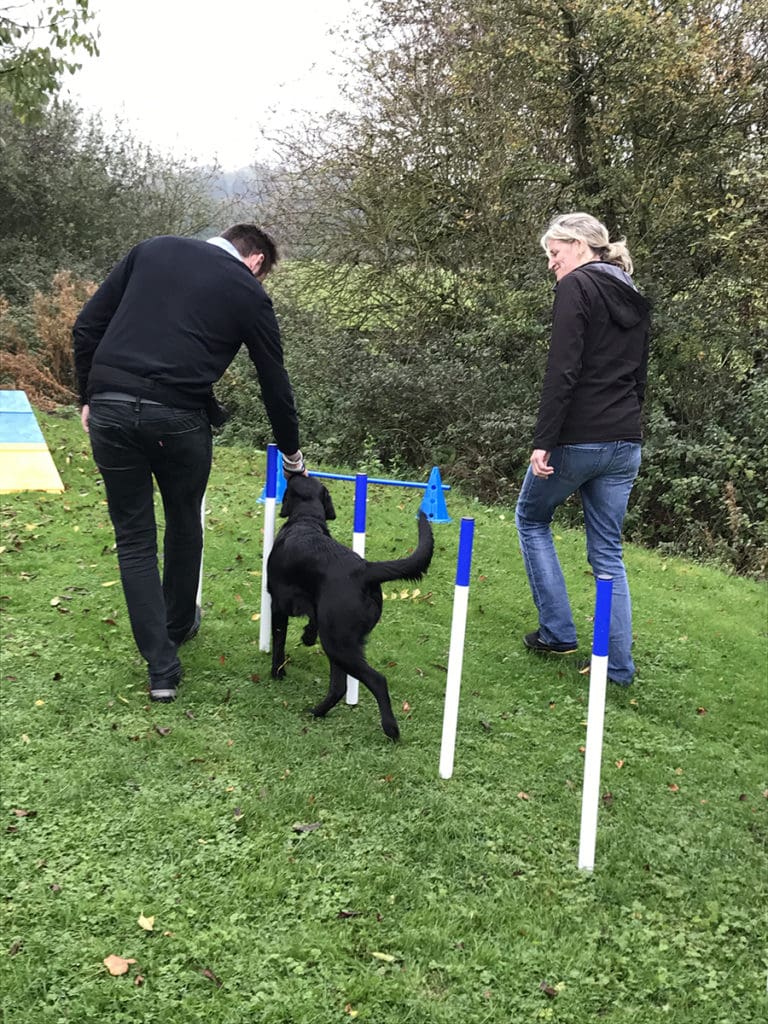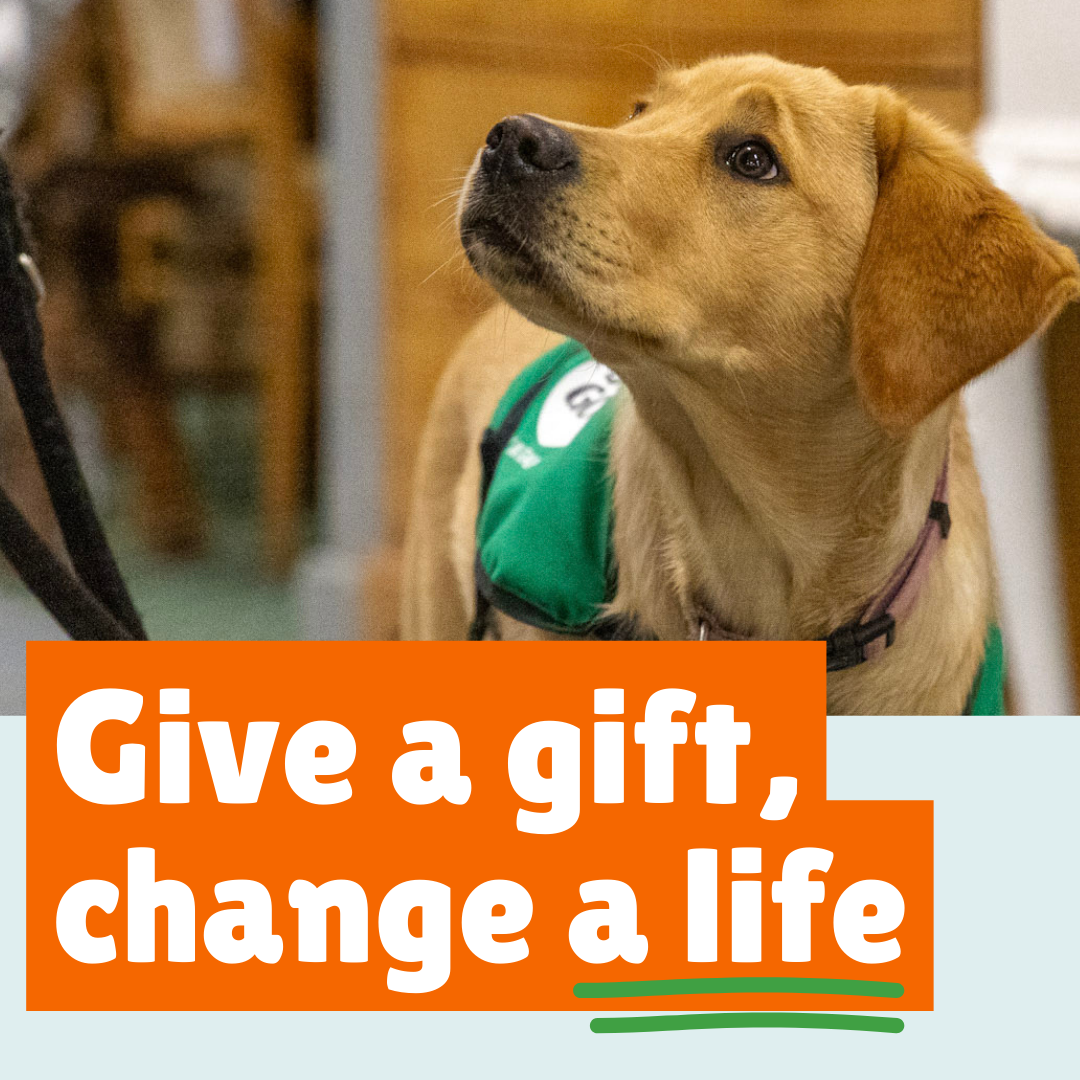Our Community Dogs and their specialist handlers work with people with a range of disabilities and individual needs over a series of goal-oriented sessions designed to improve independence, wellbeing and skills.

Our team work with clients of all ages alongside other professionals such as therapists, teachers and social care practitioners.
Earlier this year, a Community Dog and Handler team worked with a young person with mild learning disabilities who found it difficult to concentrate at school. They also struggled to engage positively with classmates and, due to behavioural difficulties, were at risk of permanent exclusion.
Establishing clear goals
Working together with school staff, our goal was to:
- Help the young person regulate their emotions
- Improve self-esteem
- Attend school and thus prevent the need for alternative education provision or increased levels of support.
Developing a structured timetable and programme of activity
The programme with the Community Dog and Handler comprised four key phases and took place over a series of 15 weekly visits.
Phase 1: Building relationship with the Community Dog and Handler
- The first stage of any intervention programme is for the client to build a relationship and rapport with the dog, which will become the longer term motivation to engage in activities aimed at achieving their goals.
Phase 2: Bringing a positive association to school and starting to build self-esteem

- In this phase of the intervention, we harnessed the young person’s interests and designed activities with the Community Dog which required the young person to listen, take instruction and take action. This included football games and agility exercises.
Phase 3: Build on new levels of self-esteem to develop further skills with the Community Dog and reinforce a sense of accomplishment and belief.
- In this phase, we progressed to formal dog training exercises, building up to recognising the young person’s achievements in a dog handling certificate. This involved working with Community Dog in busier, town-type conditions and required greater concentration and listening to instruction.
Phase 4: Reinforce achievements and provide opportunities to build on new levels of self-esteem
- The Community Dog team continued to build the young person’s skills with new activities and challenges, thus further improving their confidence and self-esteem. To mark their progress and achievements, the young person was presented with a certificate in dog handling and training, which they were proud to receive.
Positive outcomes
The outcomes achieved by the Community Dog team, in association with the school staff as part of the young person’s local care plan, are profound and powerful.
- The student is still in school and is no longer at risk of exclusion.
- The school report that this student now has more motivation in class, has stayed in some lessons for longer, has substantially increased confidence and holds a greater belief in their ability to achieve things.
- The intervention has also enabled the school to gain greater insight into what motivates this young person and how best to structure support in the future.
- Even during the COVID-19 lockdown period, the school reported that the young person was probably coping better than many children and had accessed school material online and completed work, supported by daily calls with a key worker.
Feedback
Feedback from school staff has been very positive, including the following views and insights:
“For young adults that might be struggling with confidence, Dogs for Good brings massive benefits to their self-esteem. Working on confidence will always help people gain life skills.”
“I think the Community Dog programme really helped. It not only gave the student something to look forward to but also encouraged them to think of other the needs of others. As a school, the Community Dog programme reminded us of the powerful positive effect animals can have on young people with mental health problems. From this programme we have now developed a work experience programme which involves caring for animals.”
Dogs for Good’s Hayley Stimpson says:
“We’re delighted to have been able to help this young person. By enabling the student to stay in mainstream education, this prevents the need for an alternative or specialist education provision to be put in place.
“In addition to the immediate financial benefits, the student’s continued engagement in mainstream education increases the likelihood of them being able to continue a mainstream pathway through to age 16 and beyond. Naturally, this also opens up the longer term financial and societal benefits that come with a young person remaining in education and reaching their full potential.”
